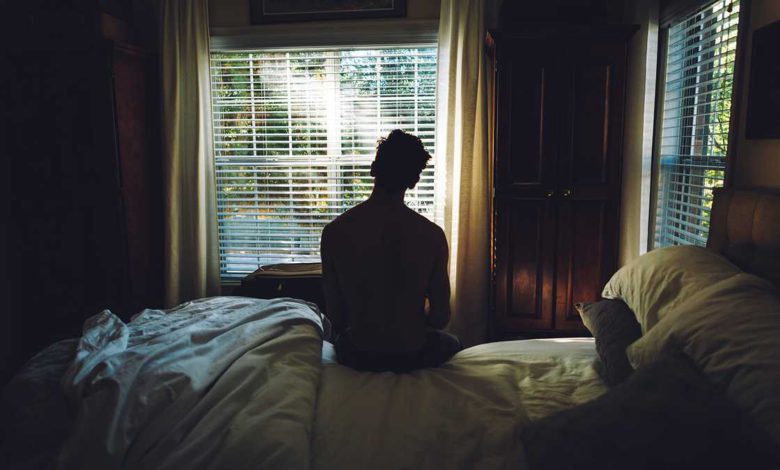

Video above: Sleep specialist explains what lawmakers got wrong with permanent daylight saving time billThe end of daylight saving time is upon us again, an autumn tradition when the United States, Europe, most of Canada and a number of other countries move their clocks backwards an hour in a sort of Groundhog Day trust fall. We'll move them forward (again) next spring when governments put daylight saving back in place.But are we putting our trust in an unhealthy, outdated idea?Not according to the United States Senate, which in March passed the Sunshine Protection Act of 2021 -- if it becomes law, daylight saving time will be permanent."The call to end the antiquated practice of clock changing is gaining momentum throughout the nation," said Senator Marco Rubio (R-FL), who first introduced the bill in the U.S. Senate, in a statement. Florida's legislature voted to make daylight saving time permanent in Florida in 2018, but it can't go into effect until it is federal law as well.The bill still has to make its way through the U.S. House of Representatives and be signed into law by the president. If or when that is the case, we'll move our clocks forward and leave them that way, permanently living one hour ahead of the sun.However, a growing number of sleep experts say the act of moving our clocks forward in the spring is ruining our health. Studies over the last 25 years have shown the one-hour change disrupts body rhythms tuned to Earth's rotation, adding fuel to the debate over whether having daylight saving time in any form is a good idea."I'm one of the many sleep experts that knows it's a bad idea," said Dr. Elizabeth Klerman, a professor of neurology in the division of sleep medicine at Harvard Medical School."Your body clock stays with (natural) light, not with the clock on your wall," Klerman said. "And there's no evidence that your body fully shifts to the new time."Dr. Phyllis Zee, director of the Center for Circadian and Sleep Medicine at Northwestern University's Feinberg School of Medicine in Evanston, Illinois, also opposes daylight saving time."Between March and November your body gets less morning light and more evening light, which can throw off your circadian rhythm," she said.Standard time, which we enter when we move our clocks back in the fall, is much closer to the sun's day and night cycle, Zee said. This cycle has set our circadian rhythm, or body clock, for centuries.Video below: As clocks 'fall back,' here's where Mass. residents stand on daylight saving timeThat internal timer controls not just when you sleep, but also when you want to eat, exercise or work, as well as "your blood pressure, your heart rate and your cortisol rhythm," Zee added.A call to ban daylight saving time for good has come from the American Academy of Sleep Medicine: "Current evidence best supports the adoption of year-round standard time, which aligns best with human circadian biology and provides distinct benefits for public health and safety."The proposal has been endorsed by more than 20 medical, scientific, and civic organizations, including the American College of Occupational and Environmental Medicine, the National Parent Teacher Association, the National Safety Council, the Society for Research on Biological Rhythms and the World Sleep Society.What's the harm?When our internal clocks are offset from the solar day-night cycle by even one hour we develop what sleep experts call "social jet lag." Studies have shown social jet lag increases the risk of metabolic disorders such as diabetes, raises the risk of heart disease and stroke, worsens mood disorders such as depression, affects the digestive and endocrine systems and shortens our sleep duration. It can even reduce life expectancy,A 2003 study found getting one hour less sleep for two weeks had the same effect on thinking and motor skills as going without sleep for two full nights. Reducing sleep by 90 minutes from the recommended 7 to 8 hours for adults altered the DNA of immune cells and boosted inflammation, a key cause of chronic disease, according to another study.Making the time change permanent would make the chronic effects of any sleep loss more severe, not only "because we have to go to work an hour earlier for an additional 5 months every year but also because body clocks are usually later in winter than in summer with reference to the sun clock," according to a statement from the Society for Research on Biological Rhythms."The combination of DST and winter would therefore make the differences between body clocks and the social clock even worse and would negatively affect our health even more," the authors concluded.Video below: Permanent daylight saving time would reduce deer crashes, study saysWhy did the Senate pass the bill?There are reasons the U.S. Senate unanimously passed the Sunshine Protection Act. Proponents say that extra daylight in the evening cuts down on car accidents and crime, and increases opportunities for commerce and recreation, as people prefer to shop and exercise during daylight hours.However, research has shown both heart attacks and fatal car accidents increase after the clock falls forward in the spring. Children also end up going to school in the morning while it is still dark -- with disastrous consequences.When President Richard Nixon signed a permanent daylight saving time into law in January 1974, it was a popular move. But by the end of the month, Florida's governor had called for the law's repeal after eight schoolchildren were hit by cars in the dark. Schools across the country delayed start times until the sun came up.Video below: Sleep specialist explains what lawmakers got wrong with permanent daylight saving time billBy summer, public approval had plummeted, and in early October Congress voted to switch back to standard time.A similar backlash occurred when the U.S. first implemented daylight saving time in 1918, as a way to reduce demand for electricity usage by adding sunlight to the end of the day in response to World War I. (Studies since have found little to no cost savings from the practice.) The time switch was so unpopular that the law was repealed the following year."The United States has tried permanent daylight saving time twice before and ended it early. The UK tried once before and ended it early. Russia tried it once, so did India and ended it early," Klerman said. "I think we should learn from history."
Video above: Sleep specialist explains what lawmakers got wrong with permanent daylight saving time bill
The end of daylight saving time is upon us again, an autumn tradition when the United States, Europe, most of Canada and a number of other countries move their clocks backwards an hour in a sort of Groundhog Day trust fall. We'll move them forward (again) next spring when governments put daylight saving back in place.
But are we putting our trust in an unhealthy, outdated idea?
Not according to the United States Senate, which in March passed the Sunshine Protection Act of 2021 -- if it becomes law, daylight saving time will be permanent.
"The call to end the antiquated practice of clock changing is gaining momentum throughout the nation," said Senator Marco Rubio (R-FL), who first introduced the bill in the U.S. Senate, in a statement. Florida's legislature voted to make daylight saving time permanent in Florida in 2018, but it can't go into effect until it is federal law as well.
The bill still has to make its way through the U.S. House of Representatives and be signed into law by the president. If or when that is the case, we'll move our clocks forward and leave them that way, permanently living one hour ahead of the sun.
However, a growing number of sleep experts say the act of moving our clocks forward in the spring is ruining our health. Studies over the last 25 years have shown the one-hour change disrupts body rhythms tuned to Earth's rotation, adding fuel to the debate over whether having daylight saving time in any form is a good idea.
"I'm one of the many sleep experts that knows it's a bad idea," said Dr. Elizabeth Klerman, a professor of neurology in the division of sleep medicine at Harvard Medical School.
"Your body clock stays with (natural) light, not with the clock on your wall," Klerman said. "And there's no evidence that your body fully shifts to the new time."
Dr. Phyllis Zee, director of the Center for Circadian and Sleep Medicine at Northwestern University's Feinberg School of Medicine in Evanston, Illinois, also opposes daylight saving time.
"Between March and November your body gets less morning light and more evening light, which can throw off your circadian rhythm," she said.
Standard time, which we enter when we move our clocks back in the fall, is much closer to the sun's day and night cycle, Zee said. This cycle has set our circadian rhythm, or body clock, for centuries.
Video below: As clocks 'fall back,' here's where Mass. residents stand on daylight saving time
That internal timer controls not just when you sleep, but also when you want to eat, exercise or work, as well as "your blood pressure, your heart rate and your cortisol rhythm," Zee added.
A call to ban daylight saving time for good has come from the American Academy of Sleep Medicine: "Current evidence best supports the adoption of year-round standard time, which aligns best with human circadian biology and provides distinct benefits for public health and safety."
The proposal has been endorsed by more than 20 medical, scientific, and civic organizations, including the American College of Occupational and Environmental Medicine, the National Parent Teacher Association, the National Safety Council, the Society for Research on Biological Rhythms and the World Sleep Society.
What's the harm?
When our internal clocks are offset from the solar day-night cycle by even one hour we develop what sleep experts call "social jet lag." Studies have shown social jet lag increases the risk of metabolic disorders such as diabetes, raises the risk of heart disease and stroke, worsens mood disorders such as depression, affects the digestive and endocrine systems and shortens our sleep duration. It can even reduce life expectancy,
A 2003 study found getting one hour less sleep for two weeks had the same effect on thinking and motor skills as going without sleep for two full nights. Reducing sleep by 90 minutes from the recommended 7 to 8 hours for adults altered the DNA of immune cells and boosted inflammation, a key cause of chronic disease, according to another study.
Making the time change permanent would make the chronic effects of any sleep loss more severe, not only "because we have to go to work an hour earlier for an additional 5 months every year but also because body clocks are usually later in winter than in summer with reference to the sun clock," according to a statement from the Society for Research on Biological Rhythms.
"The combination of DST and winter would therefore make the differences between body clocks and the social clock even worse and would negatively affect our health even more," the authors concluded.
Video below: Permanent daylight saving time would reduce deer crashes, study says
Why did the Senate pass the bill?
There are reasons the U.S. Senate unanimously passed the Sunshine Protection Act. Proponents say that extra daylight in the evening cuts down on car accidents and crime, and increases opportunities for commerce and recreation, as people prefer to shop and exercise during daylight hours.
However, research has shown both heart attacks and fatal car accidents increase after the clock falls forward in the spring. Children also end up going to school in the morning while it is still dark -- with disastrous consequences.
When President Richard Nixon signed a permanent daylight saving time into law in January 1974, it was a popular move. But by the end of the month, Florida's governor had called for the law's repeal after eight schoolchildren were hit by cars in the dark. Schools across the country delayed start times until the sun came up.
Video below: Sleep specialist explains what lawmakers got wrong with permanent daylight saving time bill
By summer, public approval had plummeted, and in early October Congress voted to switch back to standard time.
A similar backlash occurred when the U.S. first implemented daylight saving time in 1918, as a way to reduce demand for electricity usage by adding sunlight to the end of the day in response to World War I. (Studies since have found little to no cost savings from the practice.) The time switch was so unpopular that the law was repealed the following year.
"The United States has tried permanent daylight saving time twice before and ended it early. The UK tried once before and ended it early. Russia tried it once, so did India and ended it early," Klerman said. "I think we should learn from history."
Source link









